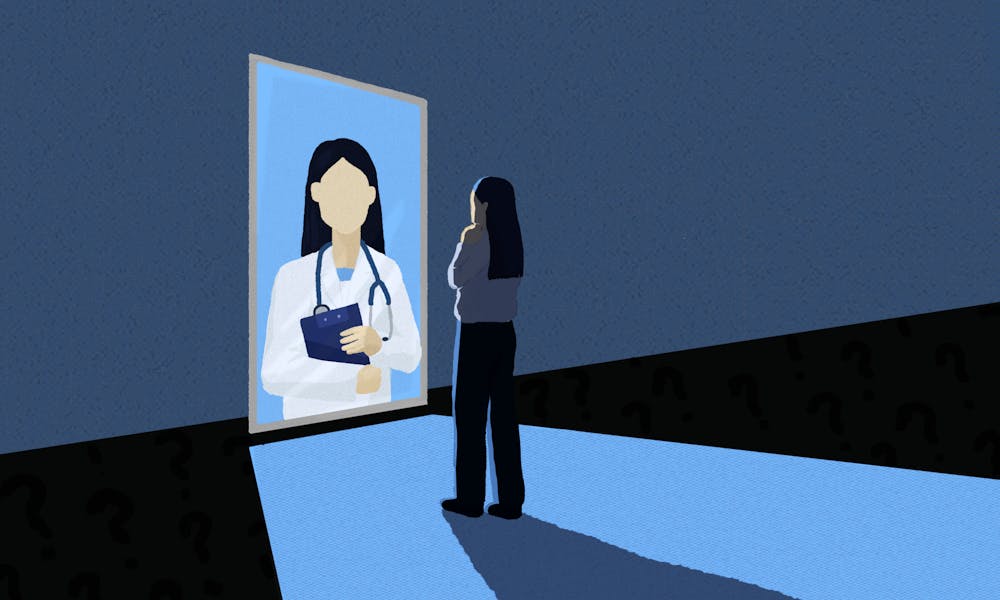As Penn students, we are all familiar with the concept of tradeoffs—specifically, those which trade “fun right now” for “success later.” In fact, many of us probably consider ourselves quite savvy negotiators, exchanging some intoxicated high school shenanigans for an acceptance letter to an elite university, or exchanging a few all–nighters for a killer interview with a company that will spearhead our careers in whichever direction we may choose.
However, not all trade–offs are worthwhile, and I didn’t realize this until I was neck–deep into pre–med. The most important lesson I learned from changing my career plans can be summed up quite concisely as this: If you start to feel like you’re getting the bad end of the deal, you probably are.
When I began my education at Penn, I searched for the best bargain I could find. Considering my aptitude and passion for biology, as well as my desire to help those in need, pursuing a career as a doctor seemed like a perfect fit. From there, I began my negotiations. What I traded: a few missed parties the weekends before my chemistry midterms, a small mental breakdown the morning of my CHEM 101 final, studying at Stommons until 2 in the morning at least twice a week, and quitting a few extracurricular activities I simply didn’t have time for. What I got in return: confirmation from my professors, my pre–med advisor, my peers, and my family that I was making the right choices, a checklist with every box checked off, and confidence that I could build a meaningful career in medicine.
All in all, it seemed like a fair trade. You make some sacrifices, but you end up with something far better than what you gave up. By the end of my freshman year, I began to feel pretty confident of my pre–med decision. I grew attached to an image of myself in a white coat, using science to help patients back to perfect health. I began to talk more confidently about my plans to attend med school, to the point where they replaced my major when I introduced myself to other students: “Hi, I’m Becky. I’m a sophomore studying pre–med in the college.”
Sophomore year, the stakes grew higher. What I traded: more missed social gatherings with my friends, multiple days where I felt like I couldn’t leave my bed because I was so overwhelmed, an average of 4 or 5 hours of sleep a night, passing up leadership opportunities in clubs I loved because I didn’t have enough time, and constant agony over whether I’d be able to raise my C in organic chemistry to a B. What I got in return, however, didn’t change too much. My professors and peers assured me that my B in orgo had not ruined my chances of attending an esteemed medical school. My checklist was still checked, and my meaningful career in medicine was still fully in reach.
Contrary to what you might think, the reason I dropped pre–med wasn’t because the price for my success was impossible for me to pay. Sure, orgo was incredibly hard—but it was incredibly hard for everyone, and I could have persevered. Sure, I was sleep deprived and anxious about my grades—but so were engineers, nurses, and students in every major. Why should I be any different? Many pre–med students make extreme sacrifices every day, and they are satisfied by receiving the opportunity to fulfill their dreams in return. The reason I dropped pre–med was I realized that what I was getting in return for all my hard work just wasn’t what I wanted.
The truth of the matter was that being a doctor wasn’t my dream job. I was more interested in discovering new therapies and drugs than prescribing those which were known. I was more interested in working with cells than working with patients. I also wanted a flexible working schedule, especially one that would allow me to start a family before I turned 30. I hadn’t realized this before because I had idealized being a doctor to the point where I believed that it was the only meaningful and worthwhile life–sciences profession that I could have. I had been looking at all the work I was putting into my classes, all the sacrifices I was making for my future, and I thought, “I am making the most impressive trade–off of all time,” but I didn’t even want what I was trading for. I got so caught up in the work it took to be pre–med that I forgot to truly reflect on what I was working towards.
At this point, I don’t have a specific goal that I'm working towards, but that doesn’t mean I’m not still making trade–offs every day. I sacrifice a few hours of sleep so that I can spend a few extra hours doing meaningful research in my lab. I stress over having enough time to study for my midterm because I attended three intensive club meetings the night before. I give up a night of drinking so that I can spend time doing the readings for my elective class, or so that I can attend a lecture I find interesting. These trade–offs feel worthwhile, even though I’m not quite sure where they’re leading me. In fact, I think that this uncertainty is exactly what keeps me from trading away what I love in exchange for what I think I should want. Now, I never plunge headfirst into a huge sacrifice of time or effort without considering the consequences, and I am always on the lookout for the next deal that’s best for me. Strangely enough, dropping pre–med may have been the best trade–off I’ve made yet.







